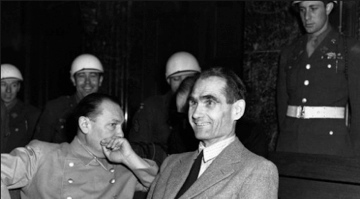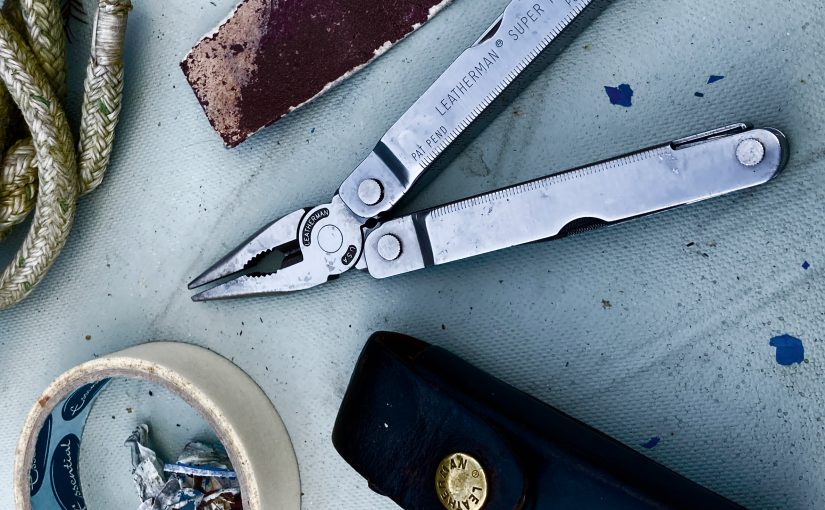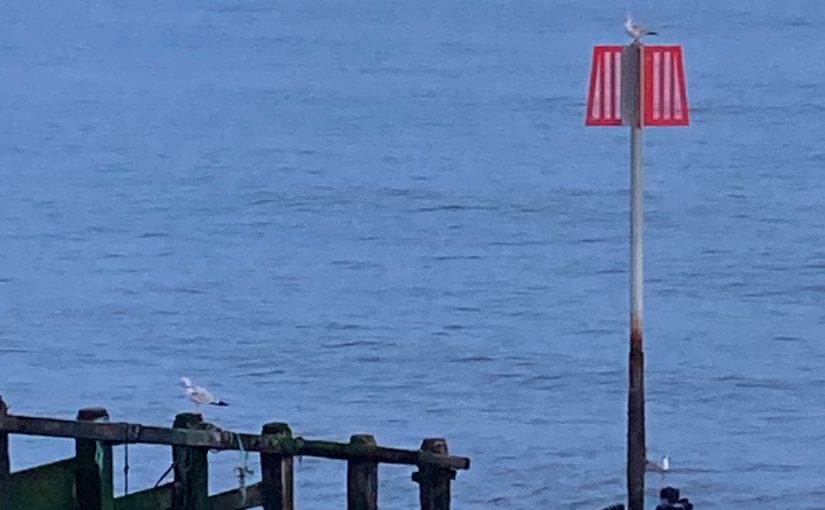Seventy-six years ago tonight it was April 27th, 1945. A man I used to know was 20 then.
This is a very simple little story. Tonight in April 1945, a young American airman missed his last transport home from a dance and had to walk from Ipswich to where he was based, on an airfield at Leiston, which doesn’t exist any more, returned to the fields it was before 3,000 Americans came to live there.
So far as I can make out his journey was twenty-two miles, give or take a mile or two. But it’s difficult to be sure. The road he took isn’t certain. He couldn’t remember how he got out of Ipswich in the dead of night. There were no signposts; all the signposts had been taken down in 1940, to hinder the German invaders who never came. He had to walk because there was no traffic on the roads at that time of night, and precious little traffic anyway. All civilian car drivers had problems getting petrol and anyway, back then most people didn’t have a car. Even if they did, the airfield was deep inside a security zone, where travel was under curfew and no-one except locals were allowed to travel, for ten miles back from the coast. His memories of the exact route were quite faint when he told me about it. He couldn’t remember where one of his girlfriends had lived in Ipswich either, the one he said he should have married.
You can hear his story here:

I drive parts of this route most weeks, living here on the edge of England. A decade ago I drove the whole of the route with him, when he came over to visit for the annual Memorial Service at Leiston. He laid a wreath on the monument there in Harrow Lane, a place at the edge of a caravan park in a field commemorating the fact that in eighteen months eighty-two men took off from the airfield and never came back. All around the memorial are lush green fields. The few airfield buildings that remain are falling down. We walked around some of them looking at the few things that remained; some old graffiti about buying war bonds, and some more words written on the walls of a hut that turned out to be notes on when some piglets long turned to chops and bacon were born, back in 1960 something. All day it rained on and off, much as Joe said it used to pretty much all the time he was there, from late January until after VE day, 9th May, Victory in Europe day, when Germany was defeated. Everyone got drunk for two weeks. They were given extended unofficial leave because although the war wasn’t over and the Japanese were still undefeated, Japan was a long way away and getting the whole army and air-force machinery around the world to fight Hirohito’s forces would take weeks, so long before jet flight and charter holidays. As it turned out, his squadron were sent to Germany when everyone had sobered up, the airforce of occupation in a country where every town of any size had been bombed.
But that’s rushing to the end of this story, which is really about the road. It’s hard to tell how the journey was made, because obviously it all happened a long time ago and even here in East Anglia things change. I originally planned to walk the same road and see how much it’s changed for myself. From the start, I knew it had changed a lot. It was going to take a lot of detective work to find-out where the road was different and when and how it got that way. It was going to be a combination of his memory of a place that once was, looking at maps to see how the roads have changed over the last 70 years and a bit of guesswork. I hoped that I’d have to use as little guesswork as possible.
I like finding things out, and I like knowing what went before. The first time I knew about the airfield was when I moved into Yoxford, which is a village of about 700 people four miles from Leiston and its airfield and about twenty miles up the east coast, north of Ipswich.

There are no motorways in Suffolk. It’s a county of holidaymakers and retired people. It has beautiful days in summer when time seems to stand absolutely still. And it is bitterly cold in winter, when the wind rushes straight in from Russia, blowing clear across Holland and the North Sea without a single hill in the way for 1500 miles and more. I didn’t know anything about the village apart from the fact that it was ten miles from Southwold and the property prices were about half what they were in the ultimate 1950s timewarp seaside resort. The obvious thing to do was search the Internet, and the first and pretty much the only thing I found when I typed “Yoxford” into Google was a website dedicated to the Yoxford Boys. It sounded like a boxing club, but when I clicked on it the reality was a little different. One of the pilots who had flown from Leiston, a man called Bud Anderson, was not only still alive but had built a website dedicated to everyone who served there, on Station 373, the home of the United States Army Air Force 357th Fighter Group, who Lord Haw Haw, William Joyce, called “The Yoxford Boys” in a radio broadcast.
Along with so much of this story, so much has changed, so much has been forgotten and to make sense of the story I needed to unpick the layers of forgotten things, And I think this story, and all the other stories like this, need to be told. Because this is not a blood and guts tale of how a brave pilot won the war, the kind of thing Hollywood used to make films about. This is one story among literally millions of others about how a very young man did something lots of ordinary young men did, missed his lift, in extraordinary circumstances. And these were. Apart from the fact there was a war on, after Elmer had walked his 26 mile trudge through the spring lanes of Suffolk he had less than half an hour to get ready to fly one of the last combat missions of the war, eight hours of long range patrol and bomber escort into Germany.
Like almost everything else I knew, or thought I knew about what my generation and certainly my father’s and grandfather’s generation always called The War, with capital letters. World War Two was the always the only war for them. Everything else that came after, all the scrubby little bushfights and fiascos like Korea, Cyprus, Aden, Northern Ireland, even Vietnam, all of these were never talked about in the same way. Not even the Cuban missile crisis, probably the closest any of us ever came to total and absolute nuclear destruction was never talked about the same way as The War. That was always in capitals.
I think it was probably because that war, World War Two as they only called it in the Airfix catalogue or the Radio Times, the Second World War, The War affected everybody, whether or not they were in uniform, and all the others really only affected the people who lived near whatever was happening, along with the people sent there to sort it all out. Or not, in most of those cases. Perhaps it was also called The War because it was the last time there was clearly, unarguably, a good side and a bad side and the good side won. Except of course calling any side absolutely good is a bit moot when both sides had the Soviet Union nominally on their side, and many of the people who fought the Nazis with us were sent back by us to the USSR and killed by the Soviets. Who raped tens, maybe hundreds of thousands of German women. The Soviet Union that Winston Churchill, the Prime Minister who Alf Garnett, Margaret Thatcher, Brexiters and thousands of others would not hear a word against knew all about in advance and let it happen.
I remember an English teacher at my primary school who jumped into a conversation about the interminable war games we played at break. Practically every boy, even some of the girls, was on the British and American or the German side. I never minded being on the German side. Even now I don’t know why. It certainly wasn’t a political thing. Nobody told us about death camps, or pretty much anything else. Politics meant Harold Wilson on TV telling us one week that devaluing the pound would not affect the pound in our pockets and the next week reappearing to tell us that actually, thinking about it, it would, sorry about that, easy mistake to make, you know how it is when you’re busy. Goebbels and Goring and Hitler didn’t have television to broadcast on. Maybe it wouldn’t have been any different if they did. But there were differences, just under the surface.
The English teacher pounced on something somebody said, about how the Americans were on our side. She said they weren’t. That they were on their own side. I remember it still, the first time I ever heard a single voice even vaguely different to the official line.
When you start peeling away it all gets a lot less clean and bright than it looks from a distance, or certainly from the distance that black and white war films gave me all through the 1960s, when I was a child. I grew up with the descendents of Polish exiles at school, in a society which had integrated them so effectively that no-one ever thought it was odd that in our little Wiltshire town there were kids called Chris Koslowski and Bozenka Kalinka. Just recently a friend from school remembered reciting the neams of all the Polish kids she remembered; together with another friend she got to around fifty names in one year of school roll of about a thousand. In the same way no-one thought it was odd that there was a little hut with a black coirrugated iron roof calling itself the Polish Deli on the road I walked to school along every morning. I went in there once when I was about fourteen.
I’d seen a deli in an American film and heard Don Maclean singing about American Pies. Thinking about it, that could have been a levee he was singing about, but in the same way and for the same reason, The War and its aftermath, or at least the interminable film autopsies every weekend afternoon that left English servicemen either disgusted or amused at the Americans winning it all on their own, as usual, as they said. But I put deli and levee and America and Fifth Avenue and Marilyn Monroe all together in my head to come up with something completely unlike the shabby shed full of old ladies wearing black buying sausages that I found when I opened the door. And blushed and stammered and wondered how I could go out again without anyone noticing, or how I could answer anyone who wanted to know what I wanted, who would only speak in Polish to me.
I knew what I wanted but I didn’t know how to say it. I wanted to know what was going on. I wanted to be in a deli. But more than that I wanted to be more American, which wasn’t at all easy in Wiltshire in the early 1970s. Around the same time I saw one of the original American Beatniks being interviewed on our local TV station. He had been trying to jump a train and ride the rails at Temple Meads in Bristol, Brunel’s huge station on the Great Western Railway. The Beatnik sounded as confused as I was. Instead of being beaten-up by the railroad guards as he expected, they told him to mind out because the goods yard could be a dangerous place. They probably gave him a cup of tea. I felt like him all the time.
America was everywhere but it was almost impossible to find-out where. At school we played war games because it was the time war films were being made, as our fathers settled into middle age and remembered or pretended to remember a time when they didn’t live on a housing estate so new the pavements were made of gravel. We watched war films every weekend on TV. The films in colour were American. The black and white ones were usually British. The airplanes were a different shape and where the American GIs in the promotional TV shows like Combat, where a platoon fought its way across a generation’s memories of Normandy, where the German tanks were usually American 1950s models painted grey, where the Americans had semi-automatic Garand rifles even aged six or so you could see the difference as the plucky Brits soldiered on with Lee-Enfields left over from the war before, the kind illustrated in cut-away drawings in the red-bound Encyclopaedia Brittanica my father bought.
Years later I found a photo in a newspaper that seemed to sum things up. A tractor at harvest time and two men under what could only be an English sky at harvest time, their tractor looking like something Constable could have easily imagined, towing some arcane reaping machine or a binder or something else to do with harvest and corn and weird flailing mechanical arms, the kind of machine that Brunel would have laughed at before he puffed on his cigar and reached for his pencil and notebook. British mechanised farming in the early 1940s; you could tell because the colours were a bit wrong in the photo. The other clue was the men were harvesting right up to the edge of the field, long before set-aside strips had been thought off, right up to and under the steel silver wing of the B17, the Flying Fortress bomber parked at its dispersal bay on what had been farmland until the middle of 1943. When the Americans came.
Here in Suffolk it’s still impossible to drive more than ten miles without coming across another collection of narrow lanes of crumbling concrete set-out in an A-shape, the runways that are still left, the concrete scars that gave George Orwell the idea to call England Airstrip One when he wrote 1984.
So this is one story. I don’t know yet whether it’s the story I want to tell. Maybe that’s what this story is about, keeping things from ending, keeping the stories after the people in the tale have gone. And like many people of my generation, I like these stories, I know how they end.
Back in January last year I walked the first half of Joe’s walk, from Ipswich railway station to Woodbridge. I’ve never managed to finish it, partly because the road has been re-routed and it doesn’t have a footpath alongside it any more, partly because I keep thinking it should be done at night to see exactly when daylight came so he could see where he was. Partly because there will be nothing there when I get to the end of the walk, no airfield, no huts, no engines starting, just the wind in the trees and the sightless windows of the few huts that at left that haven’t fallen down. Some of them you just don’t go near.
I live on another airfield, a B17 station. The first day I slept there I was woken by the sound of an engine I’ve never heard before or since. It went on for over ten minutes at six in the morning. I have absolutely no explanation for it. A quarter mile away there’s still building that was a generator house, a square brick building I’ve always wanted to convert into a house. Close by it is a long hut that used to the the gym and the chapel. I can’t even go through the door. Something stops me.
















